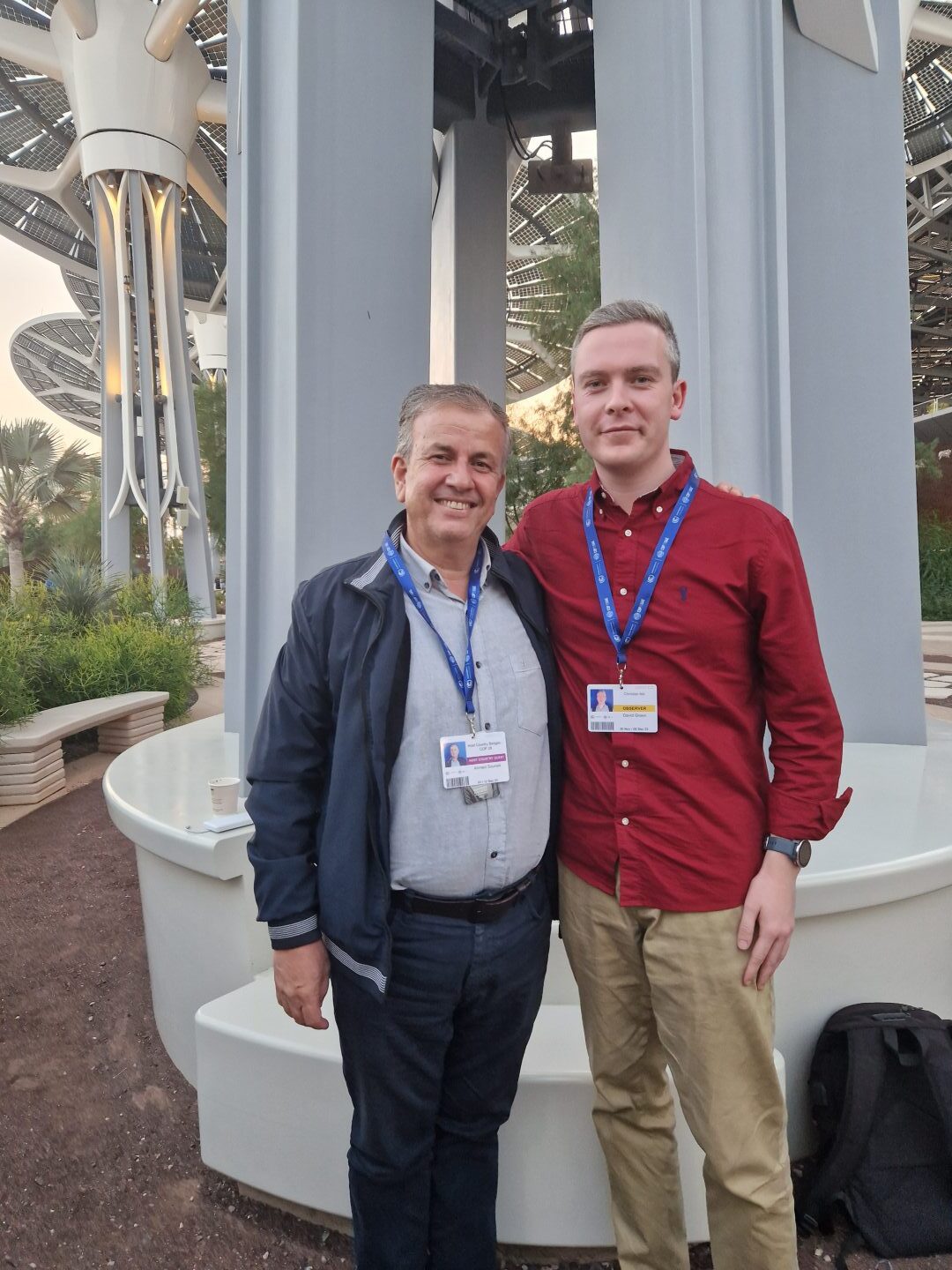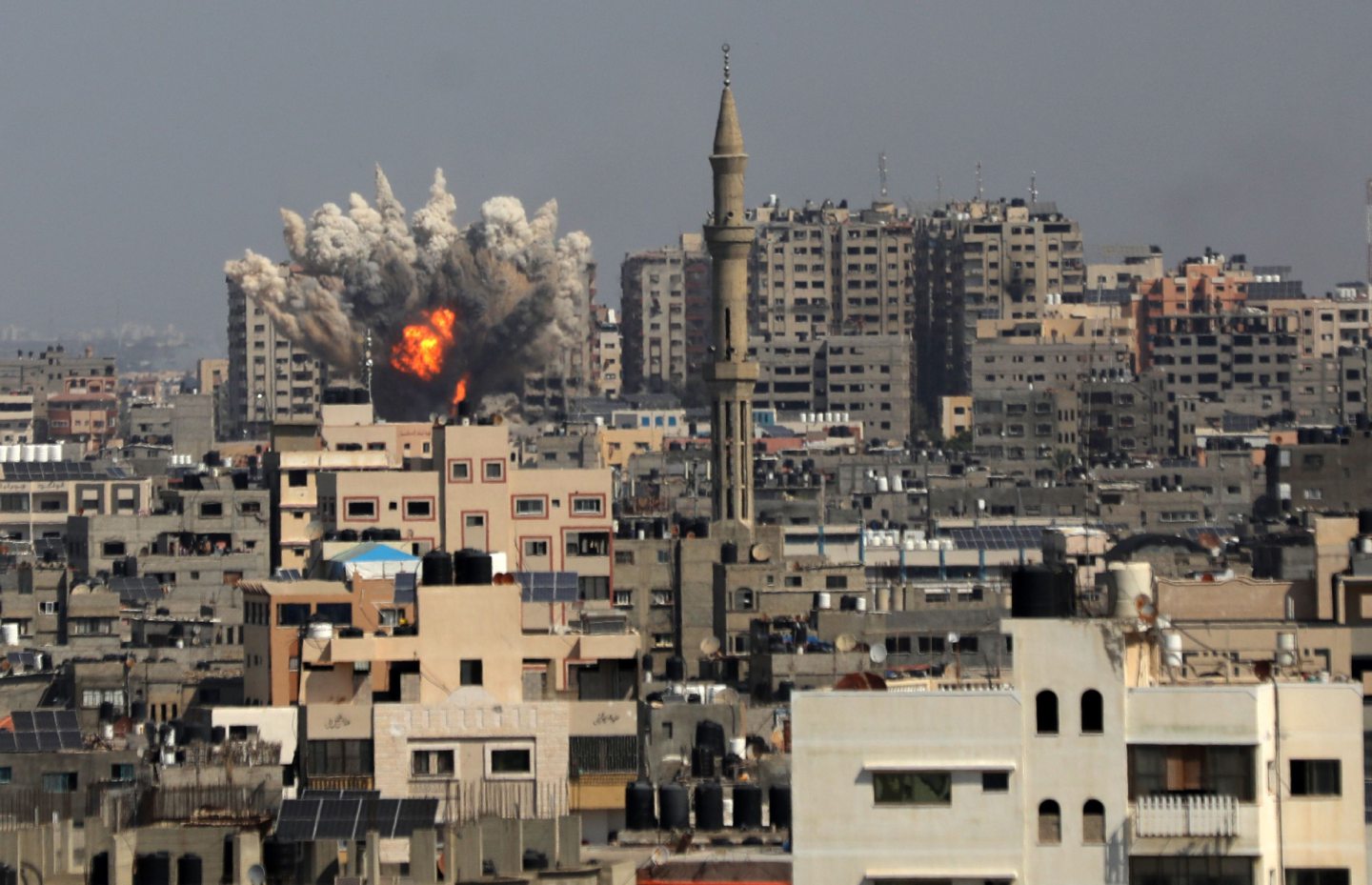There are few more important moments on the world stage than the annual United Nations Climate Change Conference, this year held over the last couple of weeks in Dubai.
As we live through the hottest year since records began, the need for bold and ambitious plans to tackle the climate crisis is more urgent than ever before.
But this summit, which I attended with Christian Aid, was different, as there was another question being asked of world leaders: how can we end the horrific escalation of violence across Israel and the occupied Palestinian territory?
As I write, over 18,800 Palestinians in Gaza and 1,200 Israelis have been killed since October 7. Airstrikes have caused widespread destruction of homes, schools and telecommunication installations.
With fuel for generators all but depleted, medical care is on its knees, and virtually all water and sanitation services have collapsed. Many civilians in Gaza now go to bed and wake up hungry amidst extreme food shortages.
There is a desperate need for a safe and effective humanitarian response, so much so that the UN general secretary has warned the conflict in Gaza “may aggravate existing threats to international peace and security.”
Alongside civil society partners from across the globe, Christian Aid used the power of protest at COP28 to ensure that the gathering of world leaders there would not forget the scale of destruction and trauma that Palestinian civilians in Gaza are experiencing. Some may say that a climate conference isn’t the place for that, but to them I say there is no climate justice without human rights, too.
Speaking up for Gaza
One man who joined us from Gaza was Christian Aid’s partner, Ahmed Sourani. Ahmed travelled to Dubai to accept an award for his work on sustainable agriculture, but was only able to travel due to the window afforded by the recent humanitarian pause in the conflict.
Ahmed was there for a greater cause, too: to speak up for his friends, his family, and his community.
He is an incredible character, full of warmth. When we met, he was just off the phone with his family back home in Gaza. Despite clearly being concerned for the welfare of his loved ones and struggling to be separated from them, his face lit up as he embraced me.
Ahmed was eager to convey just how important it is for people in the UK and around the world to show solidarity with his community and stand up for peace and human rights.
He also wanted to make clear how thankful he is for the generosity of so many of Christian Aid’s supporters. Their support has enabled our partners to respond in extremely dangerous circumstances with medical relief and community-led initiatives, such as food, shelter, sanitation, and cash.
A permanent ceasefire is only way to stop bloodshed
It was clear that the tragic scale of the crisis was taking its toll. I cannot forget Ahmed’s warning that not one person in Gaza has been left untouched by death and destruction. He explained that people have opened their homes – what few homes are left, that is – to neighbours and strangers alike who have lost everything. A whole community has come together in the darkest of hours.
Despite facing a crisis beyond what many of us could even imagine, he remained full of hope. His message was simple: let’s keep working together for peace, justice, and love for both the Palestinian people and all people.
Christian Aid is, therefore, calling for a permanent ceasefire. It is the only serious option to stop further loss of civilian life and allow for a safe and effective humanitarian response at the scale needed to address people’s needs. Despite this, the UK abstained last week on a UN resolution demanding an urgent humanitarian ceasefire.
Yes, we have since seen a tonal shift with support for “a sustainable ceasefire”, but the UK Government is still falling short of calling for an immediate ceasefire. In effect, we have new words, not new policy.
Ultimately, the cycle of violence will not end, and innocent people will continue to pay the price, until Palestinians and Israelis are treated as equals and the occupation of Gaza and the West Bank is ended.
David Green, from Ross-shire, is Christian Aid’s public engagement lead



Conversation